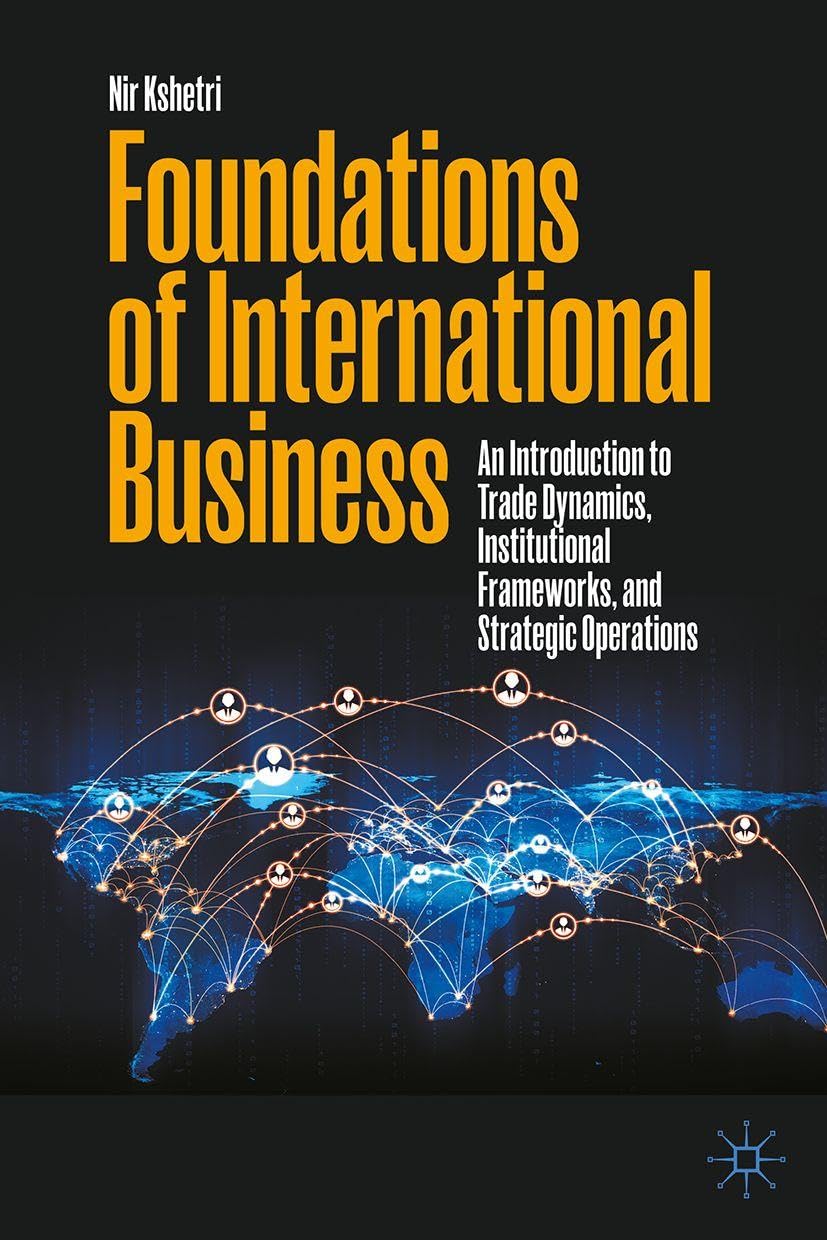
This textbook offers a comprehensive exploration of international business, combining foundational concepts and theories with analysis of current trends and developments. Divided into three parts, it first examines globalization, regional economic integration, and the balance between free trade and government intervention. The second section addresses formal and informal rules shaping political and economic systems, alongside ethical challenges in international business practices. The final part focuses on strategic decisions for market entry, foreign direct investment, and global production and supply chain management, while highlighting marketing, R&D, and performance control strategies. Students gain insights into the transformative impact of emerging technologies such as AI, big data, and blockchain on global business, along with practical, up-to-date knowledge for navigating today’s evolving marketplace. Features like “In Focus” boxes and end-of-chapter cases provide valuable tools for discussion and hands-on analysis of trends and developments in international business.

The third edition of Global Entrepreneurship: Environment and Strategy—a Choice Outstanding Academic Title—offers an enhanced exploration of the global contexts in which entrepreneurs operate. Nir Kshetri examines how economic, political, cultural, geographical, and technological environments shape entrepreneurial opportunities and value creation worldwide. Grounded in theory, the book presents key concepts, indicators, and frameworks for understanding regional differences in entrepreneurial ecosystems and finance. It analyzes entrepreneurship patterns across diverse economies through the lenses of economic systems, governance, culture, religion, and geography. New to this edition are end-of-chapter case studies, many of which highlight how artificial intelligence is transforming entrepreneurship across the globe.

Blockchain and Supply Chain Management, Second Edition explores the integration of blockchain with supply chains, linking it to complementary technologies such as artificial intelligence, the Internet of Things, satellite imagery, and machine vision. The book covers blockchain concepts, theories, and applications in addressing inefficiency, opacity, and fraud, while facilitating digitization, value creation, and collaboration. Updated for this edition, it includes new chapters on luxury goods supply chains, the latest technological and regulatory developments, case studies, and data, making it a valuable resource for scholars, students, and practitioners navigating the disruptions and innovations in global supply chains.
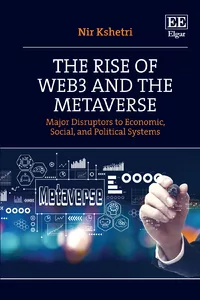
This book examines the evolution of Web3 and the metaverse, analyzing the factors that have shaped their development and adoption. It explores the complexities of the metaverse, including competing technologies, external influences, and investor responses, providing a comprehensive overview of the forces driving and constraining these emerging digital ecosystems.
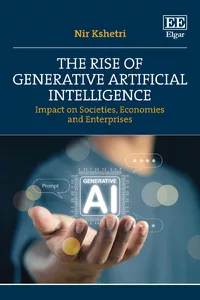
This book examines the development and diffusion of generative artificial intelligence (GAI), analyzing its potential impacts across economic, social, and industrial contexts. It considers how various sectors are responding to the technology and explores the broader implications of its adoption on industries where GAI is most prevalent.
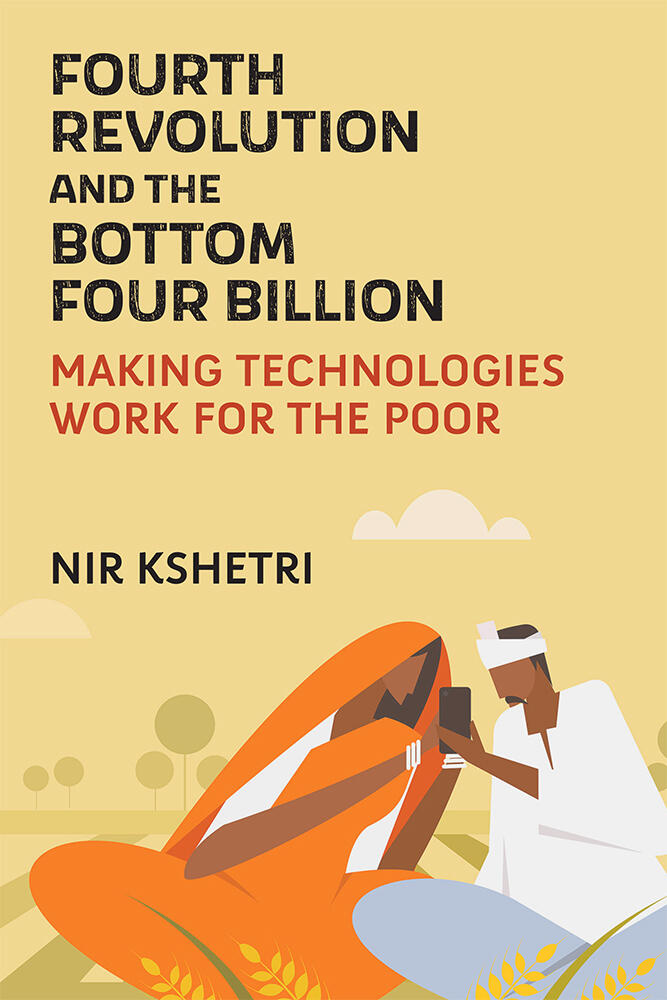
.Products and services based on advanced technologies like artificial intelligence and blockchain are often seen as serving affluent consumers in developed countries. Fourth Revolution and the Bottom Four Billion shows that marginalized and vulnerable groups can also benefit, as falling costs and easier deployment make these technologies increasingly accessible. Nir Kshetri illustrates how emerging technologies are transforming sectors such as healthcare, agriculture, finance, banking, and insurance, and examines their impact on low-income populations in low- and middle-income countries. The book highlights regulatory gaps and barriers—including limited data, low-resource languages, weak technology infrastructure, insufficient computing power, and skill shortages—that hinder adoption among marginalized groups, and emphasizes the responsibility of governments, NGOs, development organizations, academia, and the private sector to ensure equitable access to these innovations.
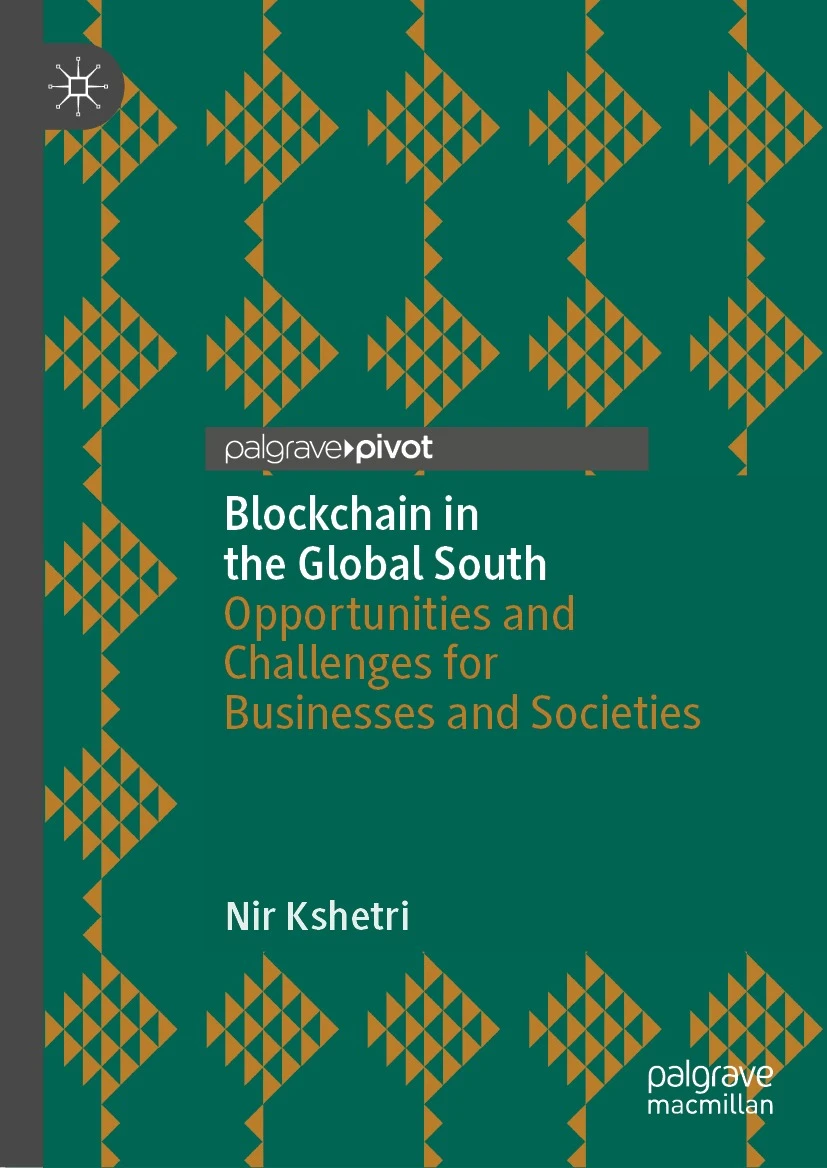
.This book discusses the unique and unusual characteristics of the blockchain and the industries and markets affected by this technology in the Global South. Its main objectives are to 1) provide a comprehensive review of economic, health, social, political, entrepreneurial, and environmental impacts of blockchain, 2) present evidence from countries, industries, and firms to broaden the understanding of the contexts, mechanisms, and outcomes associated with blockchain projects, and 3) analyze the enablers and opportunities that can be tapped and barriers that may impede the implementation of blockchain projects in these economies.

.This book provides a comprehensive analysis of how blockchain technology is reshaping economies and societies. It examines the interactions between blockchain and other emerging technologies—including artificial intelligence, the Internet of Things, satellite imagery, and digital twins—highlighting their combined potential to drive innovation, efficiency, and transformation across industries and social systems.
Winner of Choice Magazine’s Outstanding Academic Title award for 2023

.Cybersecurity Management examines the evolving landscape of cybercrime and the strategies organizations can use to strengthen their defenses in a rapidly changing digital environment. Drawing on case studies and a cross-disciplinary perspective, it explores the strategic, organizational, and technological dimensions of cybersecurity, including emerging communication technologies aimed at protecting data privacy. The book offers insights into how cyberthreats evolve with technological advances and are influenced by cultural and environmental factors, highlighting the growing importance of preparedness and awareness among policymakers, organizations, and the public.

The second edition of Global Entrepreneurship: Environment and Strategy expands and refines its analysis of the global contexts in which entrepreneurs operate. Building on its recognition as a Choice Outstanding Academic Title, the book examines how economic, political, cultural, geographical, and technological environments shape entrepreneurial activity worldwide. Grounded in theory and supported by comparative analysis, it explores variations in entrepreneurial ecosystems and finance across regions, with new coverage of Latin America. Each chapter now features case studies and applied examples that connect core concepts to real-world entrepreneurial dynamics.
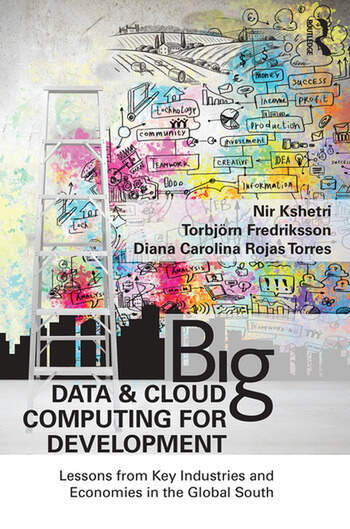
Big Data and Cloud Computing for Development offers a comprehensive framework for assessing how these technologies adapt to meet users’ needs in developing countries, particularly in sectors such as agriculture and education. It examines how businesses, governments, and consumers can leverage big data and cloud solutions to promote economic growth and address communication and infrastructure challenges. Through detailed case studies from economies such as Brazil and China, the book provides an up-to-date analysis of technological diffusion and its role in advancing the United Nations’ Sustainable Development Goals, making it a valuable resource for students, policymakers, researchers, and practitioners.
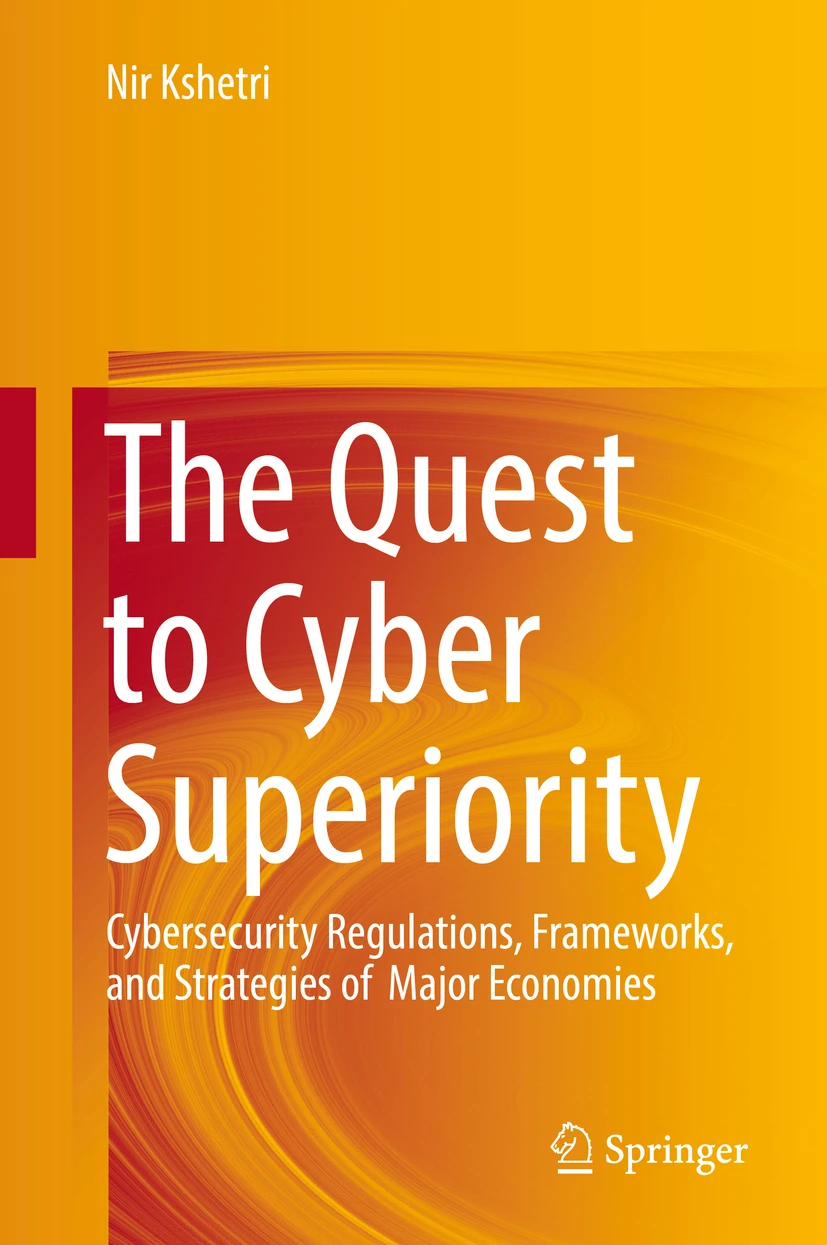
This book explores how major world economies are advancing their cyber policy frameworks to confront growing digital threats and keep pace with global technological developments. It analyzes why nations are investing heavily in cybersecurity standards, rules, and capabilities, including cyber-warfare initiatives, while revealing that technological advancement alone does not guarantee cyber-superiority. By examining the geopolitical tensions, trade-offs, and conflicting priorities shaping cybersecurity strategies, the book offers critical insights into the complex interplay between economic progress, national security, and global digital governance.
The Quest to Cyber Superiority: Cybersecurity Regulations, Frameworks, and Strategies of Major Economies (Chinese edition)

This Chinese translation of The Quest to Cyber Superiority: Cybersecurity Regulations, Frameworks, and Strategies of Major Economies examines the key drivers, laws, standards, and strategies shaping cybersecurity governance across leading economies. Published by China Democracy and Legal Press in July 2019, the book provides an in-depth analysis of how nations develop and implement cybersecurity policies to enhance digital resilience and global competitiveness.

This book examines how big data is transforming key sectors such as agriculture, environmental protection, and healthcare in developing countries. It analyzes the evolving big data industry, exploring the technologies, infrastructures, and human skills needed to harness its potential. Through detailed case studies, the book highlights innovative applications that improve productivity, environmental monitoring, and healthcare access, while addressing challenges of data privacy and security. It also investigates how big data can enhance smallholder farmers’ access to finance and markets, offering a balanced perspective on its opportunities and inequalities in global development.

This book, selected as an Outstanding Academic Title by Choice Magazine in 2014, offers a comprehensive exploration of the economic, political, cultural, geographical, and technological environments that shape entrepreneurship around the world. It introduces key theories, concepts, and indicators that influence entrepreneurial activity across regions and provides comparative insights into global variations in ecosystems and finance. Through detailed analysis and case studies, the book examines how factors such as political systems, culture, and geography impact entrepreneurial behavior, while offering data resources and planning tools that make it an essential resource for students of entrepreneurship and international business.
Selected as an Outstanding Academic Title by Choice Magazine in 2014!

Integrating theories from multiple disciplines, this book examines the patterns, characteristics, and processes of cybercrime across major regions and economies in the Global South, including China, India, former Second World countries, Latin America and the Caribbean, Sub-Saharan Africa, and the Middle East and North Africa. It provides a comparative analysis that highlights regional variations in cybercrime dynamics and the factors shaping these activities.
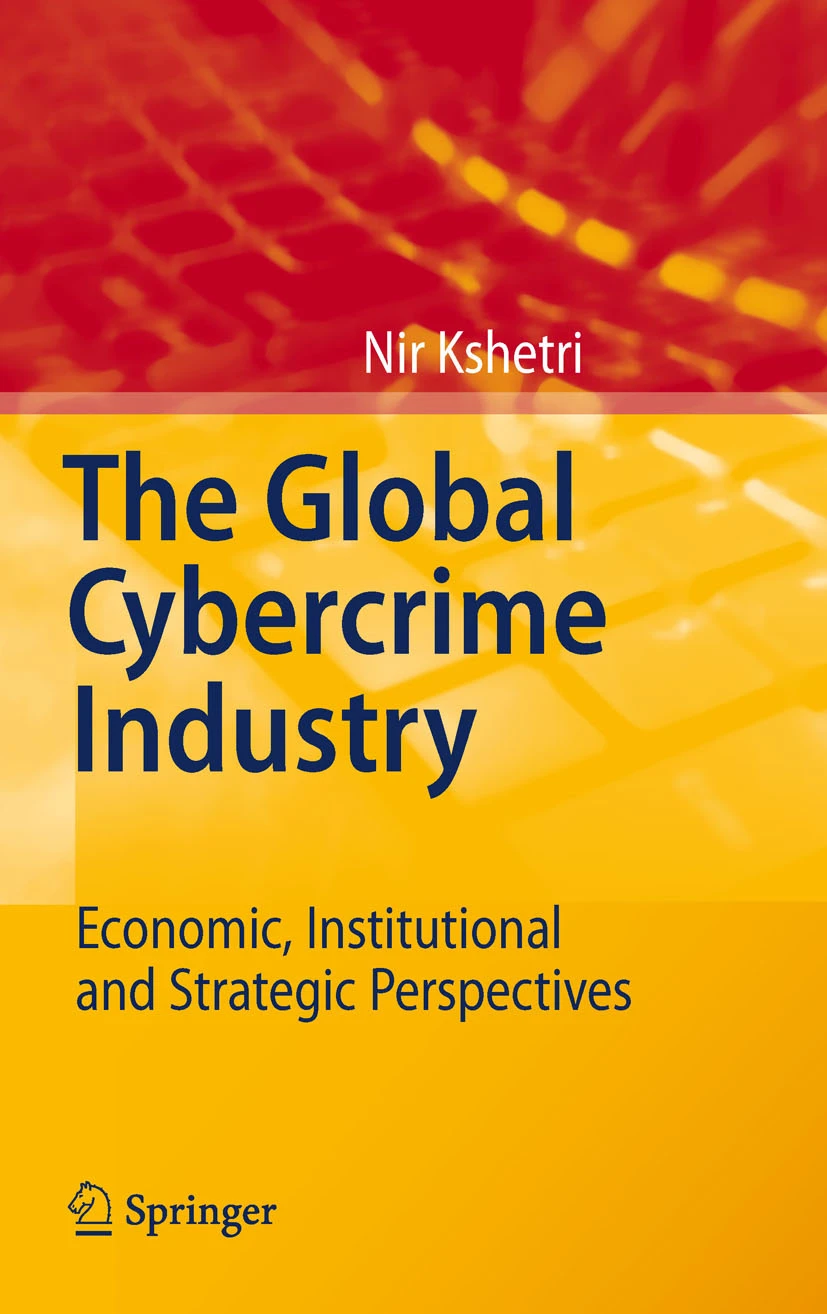
The rapid spread of the Internet and the digitization of economic activities have given rise to a new form of criminality, prompting significant concern over the security of systems, networks, and IT infrastructures. Traditional assumptions about crime often fail to explain the patterns and strategies of cybercriminals, whose activities are shaped by economic, political, and social factors. Despite the global scale of cybercrime, little is known about its precise size, structure, and the behaviors of the actors involved, making it a young and evolving field of study. This book examines these dynamics, exploring the political, social, and psychological transformations within the cybercrime industry and the complex interactions between hackers and other stakeholders.

A number of indicators point to rapid and extraordinary shifts in the Chinese high-technology landscape. This book places special emphasis on ulta-modern and crucial ICT industries in which Chinese players possess a competitive advantage. It analyzes how formal and informal institutions and associated feedback mechanisms have influenced the Chinese high-technology industry and market. Finally, the book deeply investigates the nature, sources and quality of key ingredients related to the Chinese high-technology industry and provides an insight into the status and locus of this industry.
